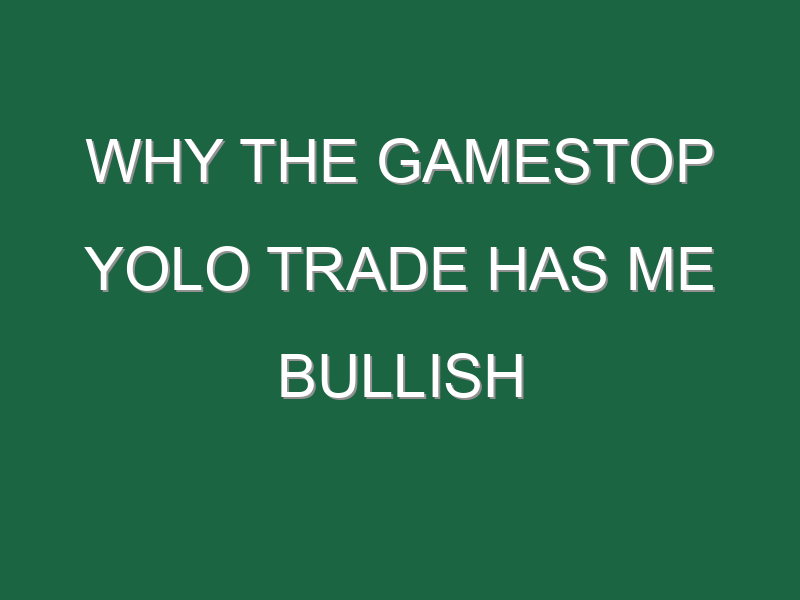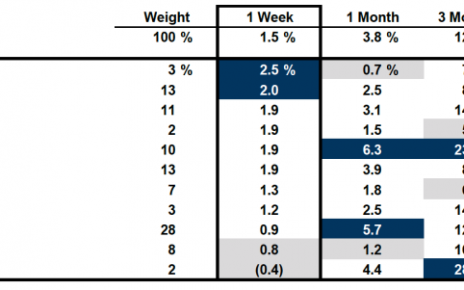For all the angst and bickering brought about by the market moves of the past week—longs vs. shorts! hedge funds vs. retail investors! Robinhood vs….Congress!?—I am left with one overwhelming feeling: bullish.
After all, consider what made the GameStop short squeeze possible in the first place. Namely, so many individuals had so much money in their pockets that they were willing to employ what’s known as the you-only-live-once investing strategy, as in, “YOLOing entire ROTH IRA balance into GME,” in the words of one Redditor.
Remember the bear market of 2020 that lasted all of a couple weeks? Me neither. But it seems like it was enough of a reset that, after years of worry that the post-2008 bull market was wearing on too long, investors seem to think this new bull is just warming up.
You’ve heard of the K-shaped recovery, which has tacked on more than $1 trillion to billionaires’ net worth during the COVID crisis. It’s also made non-billionaires who can afford to buy stocks much richer, and turned many an average Joe into millionaires. Racking up stock profits has gotten so easy, professional options traders are celebrating their ability to make “free money.” (And we haven’t even gotten to crypto yet.)
Besides, many of the people who have recently piled into stocks—some taking their stimulus checks straight to Robinhood—don’t subscribe to the school of value investing a la Ben Graham and Warren Buffett (whose Berkshire Hathaway, by the way, has woefully lagged even the Dow for the past several years). These new traders follow the school of BTFD, or buy the f***ing dip. Take a friend of mine, for example, an engineer at one of the top five tech companies. In mid-March, he poured his savings into Tesla when it swiftly lost half its value at the start of the pandemic. He’s spent the past few months on a beach in Hawaii.
As I recently wrote, in the new issue of Fortune, “If you want to make money in today’s market, why own anything but technology stocks?” (I was only discussing traditional assets; my colleague Robert Hackett tackled the question of whether you should add Bitcoin to your portfolio. Frankly, it seems like a pretty good bet too.)
Indeed, what makes these risky investments particularly appealing now is there’s almost nothing else to buy. With Fed interest rates remaining at roughly zero for the foreseeable future, bonds would be a mistake—as they have been basically since the last recession, assuming you wanted to make money. The PIMCO Total Return fund, long a go-to investment for responsibly cautious investors, has over the past decade averaged returns of just 4% a year. You would have made more money by using that money to buy a modest house, as the median American home has appreciated more than that over that timeframe. It’s not even worth comparing that paltry performance to stocks or cryptocurrency.
“That is literally one guy buying a car, and the other guy is going, I don’t have a car,” says Dan Chung, CEO and chief investment officer of asset manager Alger, who generally doesn’t recommend anything but stocks to people younger than his 91-year-old mom. Warning against bonds, he tells me, “My point is, people are literally going to become poor that way.”
As I joked to a colleague the other day, “The new rule of markets is stonks only go up.” I exaggerate. But the r/wallstreetbets rally is more proof that the market may have become too bullish to short. Last week, Andrew Left, the famed short-seller behind Citron Research known for his market-moving reports, said he would stop publishing bearish calls and “pivot” to just bullish recommendations, citing “the changing dynamics in the market.” Betting against stocks has gotten harder, Left said, noting his losses on GameStop as well as marijuana stock Tilray some years earlier. “With that, we’ll become more judicious when it comes to shorting stocks,” he said. As for going long? “We have some great ideas,” he added.
If you think this essay is the sign of the market top, who cares? I mean, YOLO.
Jen Wieczner



